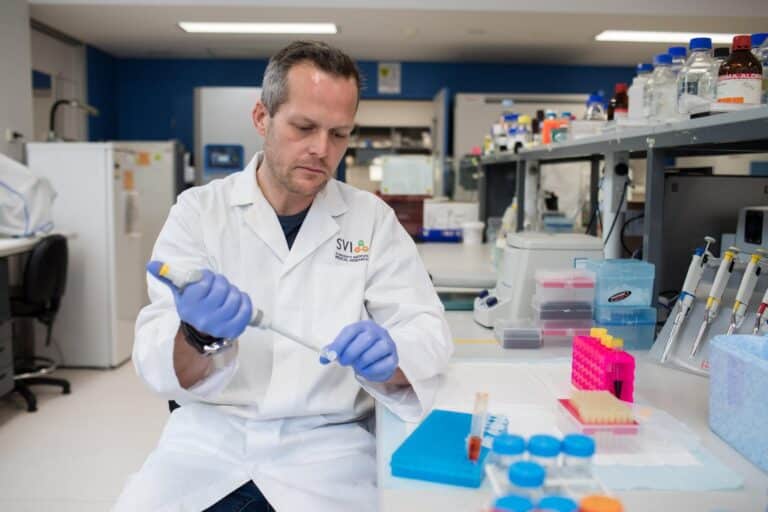Fenwick Software brings Microsoft Dynamics NAV implementation four months early and 30% under budget for Marathon Foods.

Marathon Food Industries was founded in 1963 by the Dardalis family. Based in Melbourne, the company’s aim is to continuously improve its working environment, product quality, customer service and profitability. Marathon’s large, modern and efficient factory boasts the latest overseas technology, with some machinery designed and built in-house to ensure the company exceeds world standards of production, hygiene and sanitation.
Situation
While Marathon’s production technology is leading edge, the company’s growth meant it was struggling to cope with an 18-year old DOS-based accounting system. Its problems were intensified by manual inventory and supply chain management systems which made data reconciliation and report production extremely time consuming. Reports generated by the system were not suitable for presentation to customers and suppliers.
Solution
Marathon Foods examined three software systems and three suppliers. They concluded Microsoft Dynamics NAV would best meet their needs, and chose Fenwick Software because they felt the two family-owned companies were an excellent fit. Fenwick’s 35 years experience in the IT industry, its highly skilled yet practical approach, its strong service ethic and willingness to discuss alternative solutions rather than simply making expensive modifications were key factors in Marathon’s decision.
Five key objective were agreed for the project:
- Overcome the large processing inefficiencies caused by Marathon’s legacy accounting system
- Implement ZAP reporting system to ensure data was easy to extract, report on and present professionally to clients
- Improve sales order and purchase order processing to remove double and triple keying of data
- Improve end of period and end of year processes and reduce report production time
- Implement payroll
Fenwick were fantastic with the assistance they gave us. I couldn’t speak more highly of them. They have a very good team, and it didn’t matter who we spoke with, they were all professional and extremely helpful. We’re very happy with everything they did.
Denise Houston, Marathon Foods National Sales and Marketing Manager
Benefits
Implementation was achieved four months earlier than expected, and the project came in about 30% under the anticipated budget. Six months later, Marathon is still to realise all the benefits from the new system, but has identified significant improvements across many key areas.
Monthly accounts no longer a nightmare
For Denise Houston, National Sales and Marketing Manager, the start of each month was often a nightmare. Major customer rebates were due on the 3rd of the month, but the legacy accounting system required two hours to produce an end of month report. Statements would take another two hours. As invoices could not be post-dated, delivery dockets were manually prepared to enable stock to be despatched.
“We were invoicing in the old month, it was throwing all our debtors out and customers were querying invoices,” Denise says. “Now, come the 28th of the month, we start post-dating invoices for the 1st and print them out. They don’t go into our figures or systems until the 1st, so it keeps our debtors clean and we’re not having to make notes or carry over to the next month.”
While it’s still too early for Marathon to calculate its total time savings, staff can now calculate commissions in 15 minutes rather than four days. The monthly report “which was the size of a brick” and couldn’t be dumped into Excel or turned into a text file is a thing of the past, as is the double handling of data and the week it took to prepare a sales review of top products. Customer’s individual rebate forms can be integrated into NAV, and payments that previously took nearly 20 minutes are now completed in about three.
Goods despatch streamlined
Previous laborious processes involved hand writing product picking slips, entering information into an Access database which would print a picking slip and pallet label, then re-entering the order into the accounting system. Further handwritten entries were made in the warehouse, and ‘best before’ dates entered by front office staff before goods were despatched. Now, once an order has been placed, it goes to the warehouse where the ‘best before’ date is added, pallet labels are generated and the invoice completed with ‘best before’ dates. Double handling of data has been eliminated, and product scanning will offer further efficiencies once Marathon implements manufacturing and warehouse functionality in 2012. Ultimately this will also free up some front office staff to move into telesales roles, including contacting customers about special offers.
We’ve created a new dashboard, so every morning I can see what’s going out of the company, what’s coming in, what’s in stock, and how it’s split by state and product.
Denise Houston, Marathon Foods National Sales and Marketing Manager
Minor modifications deliver significant benefits
Around 10 minor modifications were made to NAV after extensive liaison with Fenwick Software.”While we have the skills and certification to modify NAV, our advice is to avoid sizable modifications if possible,” says NAV specialist Tyrone Roberts of Fenwick Software. “But minor modifications that don’t significantly affect the functionality of the standard software are often relatively easy to complete and can prove very worthwhile.” This was the case with Marathon. They first discussed with Fenwick whether they should change their processes to fit the software, or whether modifications would deliver significant benefits.
A key modification related to preferred products, both those sold to customers and those purchased from vendors. In the previous system, errors could occur when incorrect products were invoiced to customers, or purchase orders were raised for the wrong product from the wrong vendor. “I also wanted to use NAV as a sales tool, so when we were talking to customers we could pull up their preferred product list. If they were ordering and forgot a product, we could prompt them and perhaps get an extra purchase,” says Denise. The modifications worked like a charm. In two early instances, an extra $4000 was added to one order, and $2500 to another. The modification had cost only $1200. The system provides further checks, such as prompting staff if a product not normally purchased by the customer is entered. Errors can be corrected, or customer records updated with new products.
A further modification has enabled cross-referencing the barcodes used by five major customers with the barcodes used by Marathon Foods. Staff can now enter either number on orders, and both will correctly cross reference to the product. Previously, manual checks were required to match the client code with the product.
CRM component assists KPIs
Fenwick were very good. They didn’t just go ahead and do modifications for the sake of the money, which was very reassuring for us.
Denise Houston, Marathon Foods National Sales and Marketing Manager
Marathon is now working with Fenwick Software’s Tyrone Roberts in enhancing NAV’s customer relationship management (CRM) component to manage customer complaints. Denise will then be able to extract a report on sales versus complaints, and monitor the KPI of complaints per million dim sims produced. “We’ll be able to get some great data out of that,” she says. Promotional programs are also being planned and uploaded for the next six months. Previously, Denise would spend hours preparing data, or would give staff post-it notes reminding them to reduce a price to a customer. Payroll was implemented efficiently and smoothly, despite the challenge of four key accounts staff leaving before go live.
Phase 1 of the implementation consisted of financial management, sales and receivables, purchases and payables, inventory management and payroll. Manufacturing and warehouse functionality is planned for in 2012, when Marathon has completed major construction of a new freezer and cool room.





